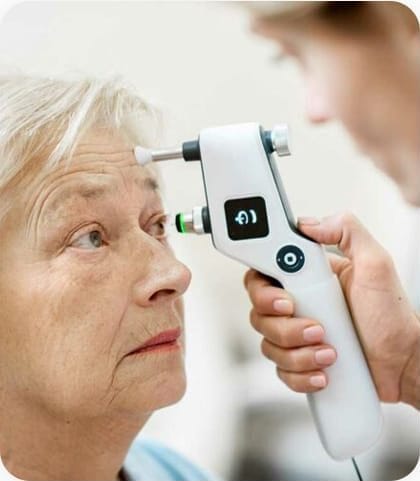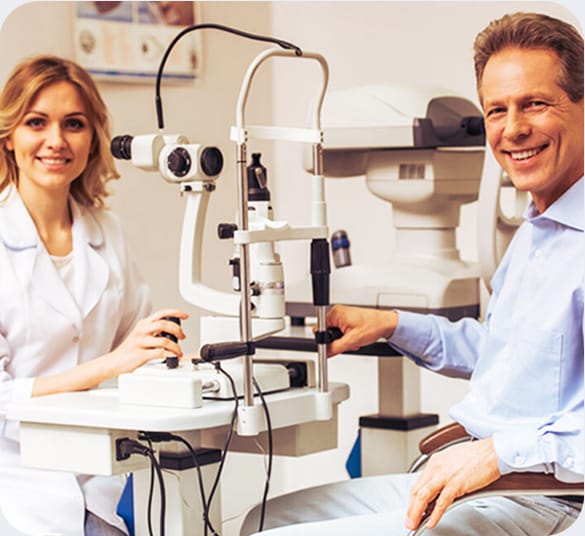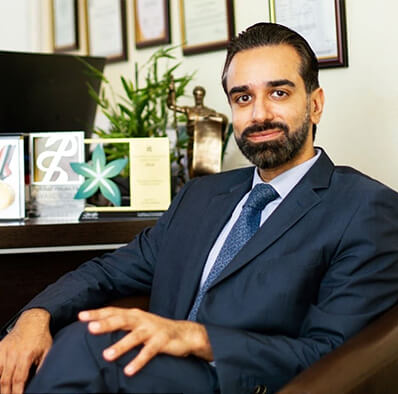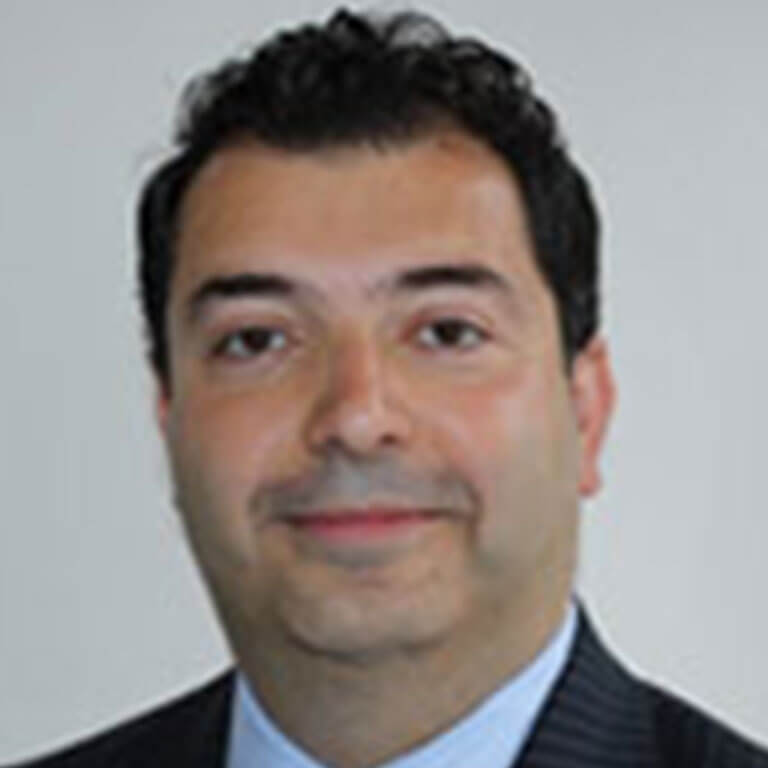
Experience Vision Freedom:
Diabetic Eye Disease Treatment in Dubai
Home | Services | Protect Your Vision: Comprehensive Diabetic Eye Disease Management
Diabetic Eye Disease
Imperial Health provides comprehensive care for diabetic eye disease, a group of eye conditions that can develop as a complication of diabetes. Our experienced ophthalmologists offer advanced diagnostics, personalized treatment plans, and ongoing management to help patients preserve their vision and prevent vision loss. We are committed to protecting your sight and maintaining your eye health.
Our Services
High blood sugar from diabetes can damage the blood vessels in the retina, the light-sensitive tissue at the back of the eye. This can lead to various eye problems, collectively known as diabetic eye disease. Our services encompass the full spectrum of diabetic eye disease management:
Diabetic Retinopathy Screening: Regular eye exams are crucial for early detection of diabetic retinopathy, the most common diabetic eye disease. We offer comprehensive screenings using advanced imaging techniques, including optical coherence tomography (OCT) and fluorescein angiography.
Treatment for Diabetic Retinopathy: We offer a range of treatments for diabetic retinopathy, including laser photocoagulation, intravitreal injections of medication, and, in some cases, surgery. The specific treatment will depend on the stage and severity of the retinopathy.
Diabetic Macular Edema Management: Diabetic macular edema (DME) is a condition where fluid leaks into the macula, the central part of the retina responsible for sharp vision. We offer effective treatments for DME, including injections and laser therapy.
Cataract Surgery for Diabetics: Diabetics are at increased risk of developing cataracts. We offer advanced cataract surgery with specialized IOL options tailored to the needs of diabetic patients.
Glaucoma Management for Diabetics: Diabetics are also at increased risk of developing glaucoma. We provide comprehensive glaucoma management, including medication, laser therapy, and surgery.

Diabetic Retinopathy Screening: Regular eye exams are crucial for early detection of diabetic retinopathy, the most common diabetic eye disease. We offer comprehensive screenings using advanced imaging techniques, including optical coherence tomography (OCT) and fluorescein angiography.
Treatment for Diabetic Retinopathy: We offer a range of treatments for diabetic retinopathy, including laser photocoagulation, intravitreal injections of medication, and, in some cases, surgery. The specific treatment will depend on the stage and severity of the retinopathy.
Diabetic Macular Edema Management: Diabetic macular edema (DME) is a condition where fluid leaks into the macula, the central part of the retina responsible for sharp vision. We offer effective treatments for DME, including injections and laser therapy.
Cataract Surgery for Diabetics: Diabetics are at increased risk of developing cataracts. We offer advanced cataract surgery with specialized IOL options tailored to the needs of diabetic patients.
Glaucoma Management for Diabetics: Diabetics are also at increased risk of developing glaucoma. We provide comprehensive glaucoma management, including medication, laser therapy, and surgery.
Why Choose Imperial Health
Key Benefits of Choosing Imperial Health for Diabetic Eye Disease Care
Specialized Expertise
Our team comprises experienced ophthalmologists specializing in diabetic eye disease diagnosis and treatment
Advanced Technology
We utilize state-of-the-art diagnostic and treatment technology to ensure accurate diagnoses and effective management
Personalized Treatment Plans:
We tailor each treatment plan to the individual needs and specific eye conditions of our patients with diabetes.

Comprehensive Care
We provide comprehensive care, from routine screenings to advanced treatments, ensuring continuity of care.
Why Choose us
Unique Features and Advantages

Collaboration with Endocrinologists
We work closely with endocrinologists to manage the overall health of our diabetic patients.

Focus on Patient Education
We believe in empowering our patients with knowledge about their condition and treatment options.

Emphasis on Prevention
We emphasize the importance of blood sugar control and regular eye exams to prevent or slow the progression of diabetic eye disease.
Our testimonials
1000+ Satisfied Patients
Had the best experience at Imperial Healthcare. Had my eyes checked by Dr Vinod, who was very helpful and professional and Kumar was always incredibly friendly.

Had the best experience at Imperial Healthcare. Had my eyes checked by Dr Vinod, who was very helpful and professional and Kumar was always incredibly friendly.

Had the best experience at Imperial Healthcare. Had my eyes checked by Dr Vinod, who was very helpful and professional and Kumar was always incredibly friendly.

Previous
Next
Our team
Meet our doctors
Our administration and support staff all have exceptional people skills
and trained to assist you with all medical enquiries.

Dr. Vinod Gauba
Medical Director

Dr. Nanis Soltan
MBBS, Msc

Dr. Samer Hamada
Consultant Ophthalmologist

Dr. Qasim Aref Qasem
Consultant Ophthalmologist
Enquiry Form
Book an Appointment
faqs
Frequently asked questions
Diabetic eye disease refers to a group of eye conditions that can develop as complications of diabetes, including diabetic retinopathy and diabetic macular edema.
Symptoms may include blurry vision, dark spots, difficulty seeing colors, and vision loss.
Diabetes can damage blood vessels in the retina, leading to swelling, leakage, or abnormal growth of blood vessels.
Managing blood sugar levels, blood pressure, and cholesterol can help reduce the risk of developing diabetic eye disease.
Treatments include laser therapy, anti-VEGF injections, and surgery, depending on the severity of the condition.
While some damage may be irreversible, early detection and treatment can prevent further vision loss.
Annual eye exams are recommended for individuals with diabetes to monitor and manage eye health.
Laser therapy can seal leaking blood vessels and reduce abnormal blood vessel growth.
Maintaining a healthy diet, regular exercise, and avoiding smoking can support eye health.
You can schedule a consultation through the website or contact the clinic directly.
